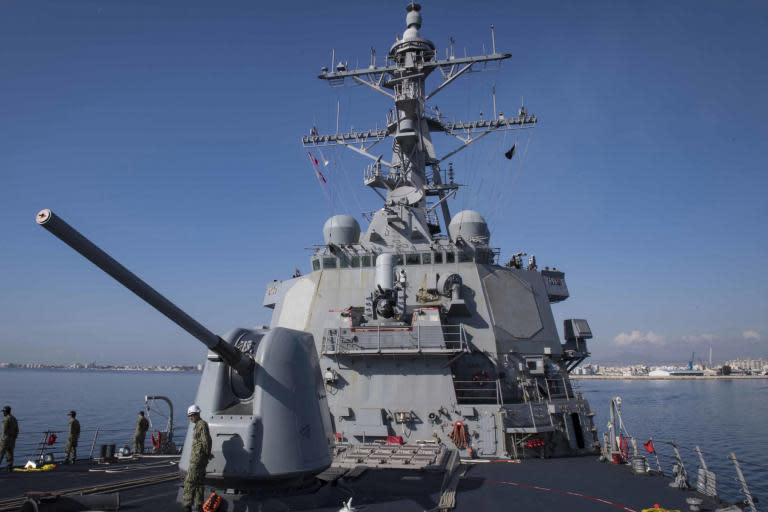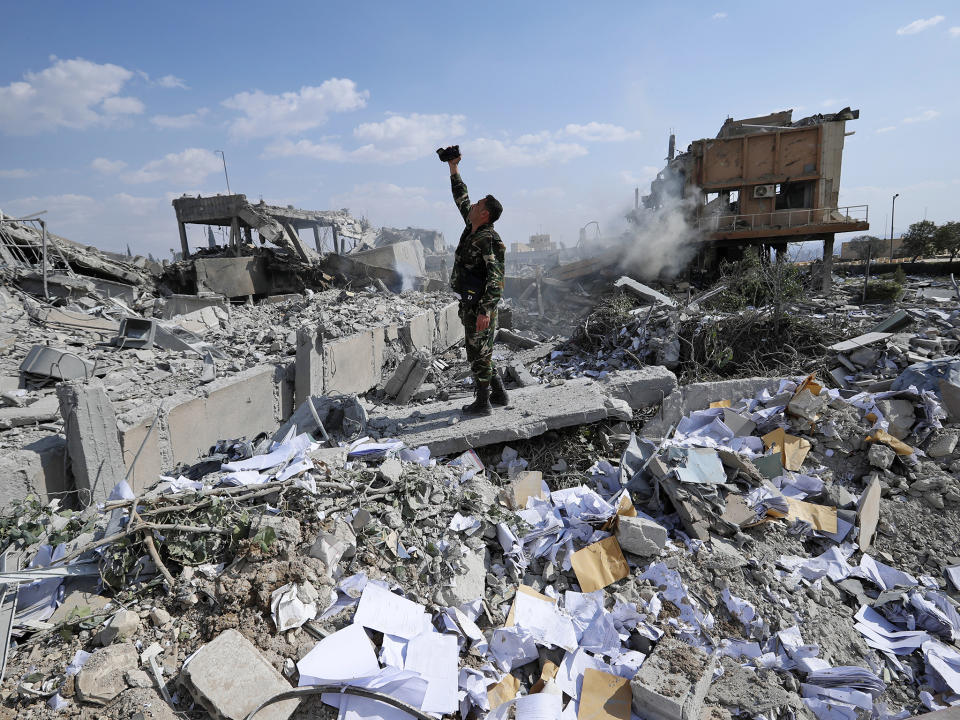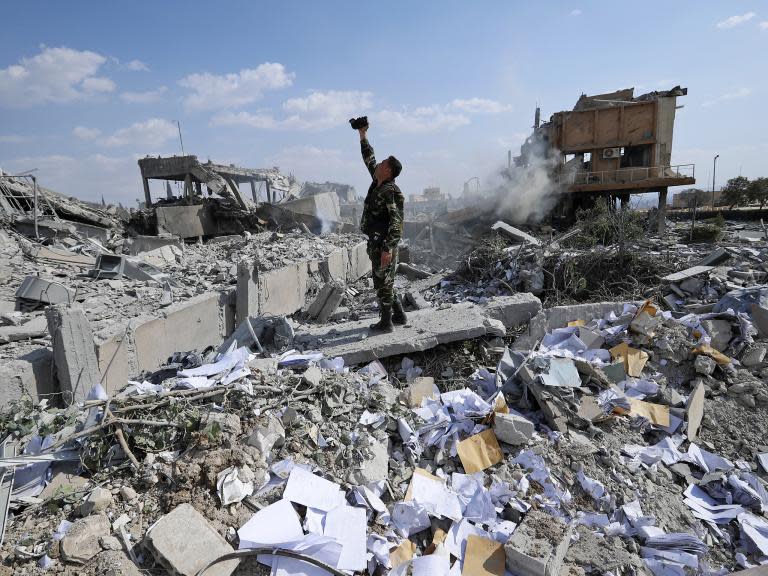Syria strikes - as it happened: Bashar al-Assad's chemical weapons capability 'set back for years' by bombing, Pentagon says
Joint air strikes by the US, UK and France have set back Syria’s chemical weapons capability “for years”, the US military said.
Cruise missiles were fired at three sites in response to what Theresa May called the “despicable and barbaric” attack in Douma last week that is believed to have killed up to 75 people.
Ms May said Bashar al-Assad could face even further strikes if chemical weapons are used again - and the US warned that they were "locked and loaded" if poison used again.
US President Donald Trump declared “mission accomplished” after more than 100 missiles were collectively launched in the early hours of the morning.
During telephone conversations on Saturday afternoon, Ms May, Mr Trump and Emmanuel Macron all agreed that the military strikes in Syria "had been a success".
Downing Street published a document setting out why it believes military action against the Syrian regime was legal after Jeremy Corbyn described the action as legally questionable.
The Russian embassy in the US said it had warned that such actions would "not be left without consequences", adding that insulting President Vladimir Putin was "unacceptable and inadmissible".
On Saturday afternoon, the UN Security Council rejected Russia's draft resolution condemning "aggression" against Syria by the US and its allies.
Please allow a moment for the live blog to load
Russia and Syria claimed most of the missiles, numbering about 110, were intercepted, while the Pentagon said Syrian defences had “no effect” on the operation.
Mr Assad, backed also by Iran, said on Saturday the bombings would increase his country’s resolve to “fight and crush terrorism”.
Ms May said she had authorised British forces to conduct precision strikes against Syria to help degrade its chemical weapons capability.
“This is not about intervening in a civil war. It is not about regime change,” Ms May said in a statement. “It is about a limited and targeted strike that does not further escalate tensions in the region and that does everything possible to prevent civilian casualties.”
RAF Tornado jets bombed a chemical weapons facility 15 miles outside Homs, the Ministry of Defence said.
Russia warned of “consequences” for the US-led military strikes, saying the use of missiles on suspected chemical weapons assets were an insult to Vladimir Putin.
“A pre-designed scenario is being implemented,” Russian ambassador Anatoly Antonov said in a statement. “Again, we are being threatened. We warned that such actions will not be left without consequences.”
Earlier, Russia’s military claimed to have evidence that Britain had “direct involvement” in staging the suspected chemical attack in Syria, a charge quickly condemned as “grotesque” by the UK.
Humanitarian volunteers were “seriously pressured” by the UK to speed up plans for a “provocation” in eastern Ghouta, Moscow’s defence ministry suggested.
Britain’s ambassador to the UN condemned the “blatant lie” as “the worst piece of fake news we’ve yet seen from the Russian propaganda machine”.
Later, a spokesman for the UK Foreign Office said: “These accusations from Moscow are just the latest in a number of ludicrous allegations from Russia, who have also said that no attack ever happened.
“This simply shows their desperation to pin the blame on anyone but their client: the [President Bashar] Assad regime
It comes as Russia and the United States traded fresh blows during the latest round of talks at the UN Security Council and amid warnings that the world is at risk of “full-blown military escalation”.
The State Department said the United States has proof at “a very high level of confidence” that the Syrian government of Mr Assad carried out the attack but is still working to identify the mix of chemicals used.
“Syria is responsible. We are all in agreement,” department spokeswoman Heather Nauert told reporters.
Additional reporting by agencies





